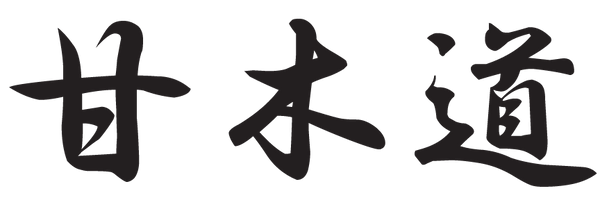Rosanjin's interpretation of Rikyu and Chojiro
Share



All three of the above items belong to Chojiro.
Rosanjin's thoughts on Rikyu and Chojiro are very interesting, so I will quote them here, even though they are long. Note that the emphasis in bold is by the author.
"A tea bowl is just that much of a craftsmanship, so it doesn't require the complicated steps and research of other things like painting, dyeing or lacquering. It would be great if you could just make something as simple as this (the shape of a tea bowl) and infuse it with spirit and fine taste. It's not that easy with a painting. You have to research a lot of different things. It's not as simple as making a tea bowl. So Chojiro focused his spirit of enlightenment on this extremely simple piece of equipment that he made in response to a request from a tea drinker, without looking elsewhere. That was Chojiro's genius, and what makes him so great. It is written everywhere that Rikyu instructed Chojiro, but I don't think Rikyu was as great as people make him out to be . When you look at Rikyu's calligraphy, there are some parts that are quite stubborn . Also, as a result of his training, there are some parts that are forceful . His handwriting is refined and beautiful. Rikyu must have been a very reliable person, and I get the impression that he was a very reliable person . However, when you look at Chojiro, there is nothing about him that makes you think he was a reliable person . He just seems warm, easygoing, and a nice person who is easy to get along with. And he is no less dignified. There is a famous Korean tea bowl called the Ido tea bowl, The reason why Ido tea bowls are so good is because they have a good dignity and a weight of dignity. His other works are masterpieces, but there is something frivolous about them, and I think it is safe to say that in this respect, Chojiro is the most outstanding individual artist. As for Rikyu's guidance, he must have had trouble with tea bowls and asked Chojiro if he could make one of this size and height. After all, he wanted to use it himself... But I don't think it's possible that it was made through Rikyu's guidance. People's abilities cannot be changed so easily through guidance. Education is like fertilizer in a vegetable garden. They say that you can't grow eggplants on a melon vine, but no matter how much fertilizer you give to a melon, it won't turn into an eggplant, and an eggplant won't turn into a melon. It's just that it grows into a high-quality melon that looks a little tasty.
Perhaps Rosanjin's personality was what made him unique. Masako Shirasu wrote, "He had many flaws," and Jiro Aoyama said, "It's difficult to build a good relationship with him." He was a genius in pottery, but his calligraphy was perhaps the true essence of Rosanjin.
1. Praise for Chojiro and its background
Rosanjin's assessment of Chojiro gets to the heart of tea bowl making. He states that genius and spirituality reside in "extremely simple vessels," which gives the impression of being connected to the spirit of Zen. The "warm" and "tranquil" feel of Chojiro's works is deeply connected to the spirit of the tea ceremony, and can be said to express the silence and harmony that flows within them. By referring to the "dignity" and "dignity" of the Ido tea bowls, he emphasizes the weight and nobility of Chojiro's tea bowls, recognizing their value as works of art that go beyond practical use.
2. Comparison with Rikyu and its intentions
Rosanjin relativizes Rikyu's greatness by arguing against the general assessment. He reads "stubbornness" and "forcefulness" in Rikyu's calligraphy, and portrays the human side of Rikyu (Rosanjin's appraisal of the authenticity of the antique art may have been false, but his analysis of the calligraphy was not clouded in the slightest). Rikyu was certainly a revolutionary figure in the tea ceremony, but his methods and attitude may have been somewhat dogmatic.
3. Deep insight through humor and irony
The humor that can be found throughout Rosanjin's writing goes beyond simple criticism. The metaphor "like fertilizer in a vegetable garden" expresses his recognition that education does not bring about essential change. This is an insight that individual talents and characteristics are not easily changed by education, and education only plays a supporting role, with which I can generally agree. The analogy "Eggplants do not grow on melon vines" satirically expresses the powerlessness of education, reminding us once again that talent and genius are paramount in the arts.
4. Sharp insight and unique perspective
Rosanjin's writings convey a keen insight into the spirituality embodied in a simple tea bowl. He ponders the heart and philosophy of the tea bowl maker behind the making of the bowl, and accurately grasps the importance of individuality in art. This deep insight is evident in his attitude of not merely assessing the personalities and works of Rikyu and Chojiro on the surface, but of trying to see the true essence behind them.
5. Uniqueness and rebellious spirit
Rosanjin's writing is refreshing in that he expresses his own opinions without hesitation in the face of the authorities of his time. His perspective challenges established evaluations, and its originality is strongly felt. This overlaps with Rosanjin's own attitude as an artist, and conveys his deep knowledge and passion for art.
